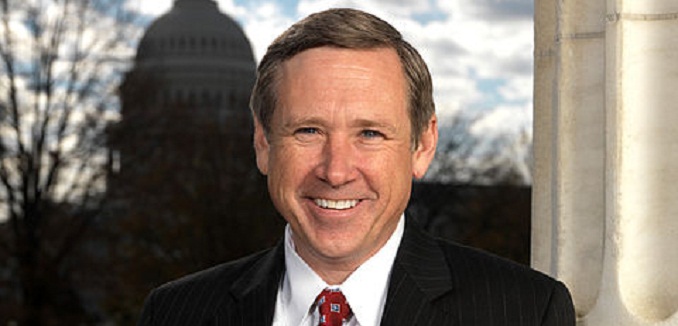There have been halting suggestions that the U.S. – in order to encourage, or evaluate, or test Iranian intentions – should reevaluate whether to press economic sanctions against Iran. Commenting on those suggestions yesterday, Senators Mark Kirk (R-IL) expressed himself unimpressed:
“The Senate should not aid and abet a European appeasement policy by softening our sanctions while the world’s leading sponsor of terrorism races toward a nuclear weapons capability,” Kirk said in a statement provided to BuzzFeed in response to a Reuters report about how the Senate Banking Committee is delaying a new set of Sanctions until after Geneva talks later this month.
Buzzfeed today described the reactions of several other lawmakers to the same suggestion, after Under Secretary for Political Affairs Wendy Sherman today testified in front of Congress that new sanctions should be delayed until after the next round of nuclear talks between the West and Iran, currently scheduled to begin October 15th in Geneva. The sentiments were not dissimilar to Kirk’s. Delaware Democratic Sen. Chris Coons acerbically noted that “this charm offensive so far to me is not charming” and Idaho Republican Jim Risch to express “no optimism” regarding the Geneva talks.
As far as the talks themselves go, Iranian president Hassan Rouhani on Wednesday reemphasized that if the West expects Iran to suspend uranium enrichment they’re going to be disappointed:
Rouhani emphasized Tehran’s longstanding position that its fundamental right to enrich uranium, a key ingredient of nuclear weapons that Iran says it needs for peaceful purposes, is not up for discussion. But his statement was a veiled hint that Iran is open to negotiating on the level of uranium enrichment as part of a deal in return for lifting of sanctions.
Rouhani’s red line sets up a direct clash with the U.S. position. National Security Adviser Susan Rice asserted last weekend that the U.S. would not accept any deal that allowed Iran to continue enriching uranium.
Rouhani’s stance renewed fears that the revolutionary-era cleric was unwilling or unable to change Iran’s long-standing positions on its nuclear program. There has been confused reporting about the degree to which Supreme Leader Ali Khamenei has empowered Rouhani to alter those positions. Rouhani has told Western audience he is “fully empowered” to negotiate a deal, and Khamenei has spoken of Iran embracing “heroic flexibility” in talks. Khamenei’s office subsequently explained that “heroic flexibility” meant “advancement and realization of the Islamic Revolution and System,” and Khamenei himself emphasized that Rouhani would not be allowed to make fundamental concessions.
[Photo: Gage /Wiki Commons]




